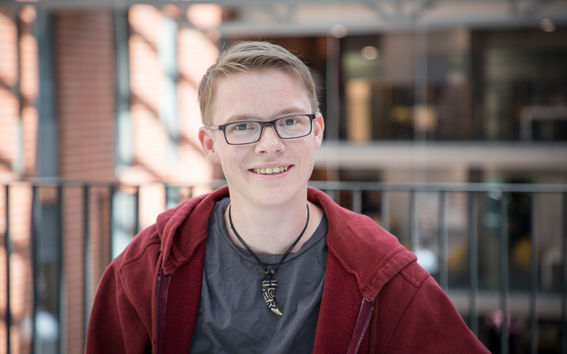For Chris Brzuska, truth and understanding are supreme virtues

What kind of research do you do?
In April 2018, I started as an Assistant Professor at both the Department of Mathematics and Systems Analysis and the Department of Computer Science. My research is about cryptography and its connections to IT security, verification, complexity theory, algorithms, and discrete mathematics.
For four years already, I have been part of a vast, collaborative effort in analysing and standardising a new version of the TLS protocol. It’s the main protocol for secure communication on the internet, for instance online banking.
Our informal group includes experts from both industry and academia. The design of the protocol for secure communication is a huge task, and we are now in the final stages of the project. One of the difficulties is backward compatibility: we need to make sure that the new protocol is compatible with the old versions but does not inherit their security weaknesses.
How did you become a researcher?
When I finished high school, I had plans of becoming a very successful banker. Although the banking business was a lot of fun, I realised I was not really accelerating my personal growth. After only six months in banking, at the age of 19, I decided that instead, I want to become a researcher in mathematics.
I studied mathematics in Germany and in Southern France. During my master’s studies, I ended up in a computer science class designing secure cryptography against arbitrary and adverse algorithms. I enjoyed that a lot.
Marc Fischlin, the professor of cryptography at Technische Universität Darmstadt, offered me a PhD position in the same research area—and I accepted the offer. Soon I ended up at the Institute for Advanced Study in Princeton for six months, followed by Tel Aviv University and Microsoft research in Cambridge.
Finally, I started as an assistant professor for IT Security Analysis at the Hamburg University of Technology where I worked closely with NXP Semiconductors for two and a half years before moving to Finland and Aalto University.
What are the highlights of your career?
I rather enjoy the highlights every single day. I feel very lucky and grateful that I can interact with great people in a way that is beneficial for both them and myself.
What is the most important quality for a researcher?
In my opinion, a good researcher is interested in and committed to truth and understanding.
I find it meaningful and fulfilling that research allows me to grow my understanding, not only of cryptography, but of many other topics as well. In teaching, I have the chance to help my students grow their ability to understand, regardless of the topic. I find it very rewarding.
What do you expect from the future?
During the interview process, I came to Finland for several days and felt comfortable. Already then, I had a very strong gut feeling Aalto will be a good environment for research and teaching—and me personally.
I have started to collaborate with my colleagues in discrete mathematics, algorithms and IT security, and I have already taught my first class. I can now confirm that Aalto is a good environment for research and teaching—and I look forward to continue enjoying to be here.
Read more news

Aalto University is introducing ORCID’s Researcher Connect service
Aalto University is introducing ORCID's Researcher Connect service, which facilitates information transfer between researchers' ORCID profiles and the university's research information management system, ACRIS.
Nature of Process: Exhibition by the students of the ‘Personal Exploration’ Course
Nature of Process is a multi-material exhibition of 14 Master´s students of Aalto ARTS
Doc+ connects research impact with career direction - join the events!
Doc+ panels have brought together wide audiences in February and continue in March with two events to discuss doctoral careers and their diversity.






